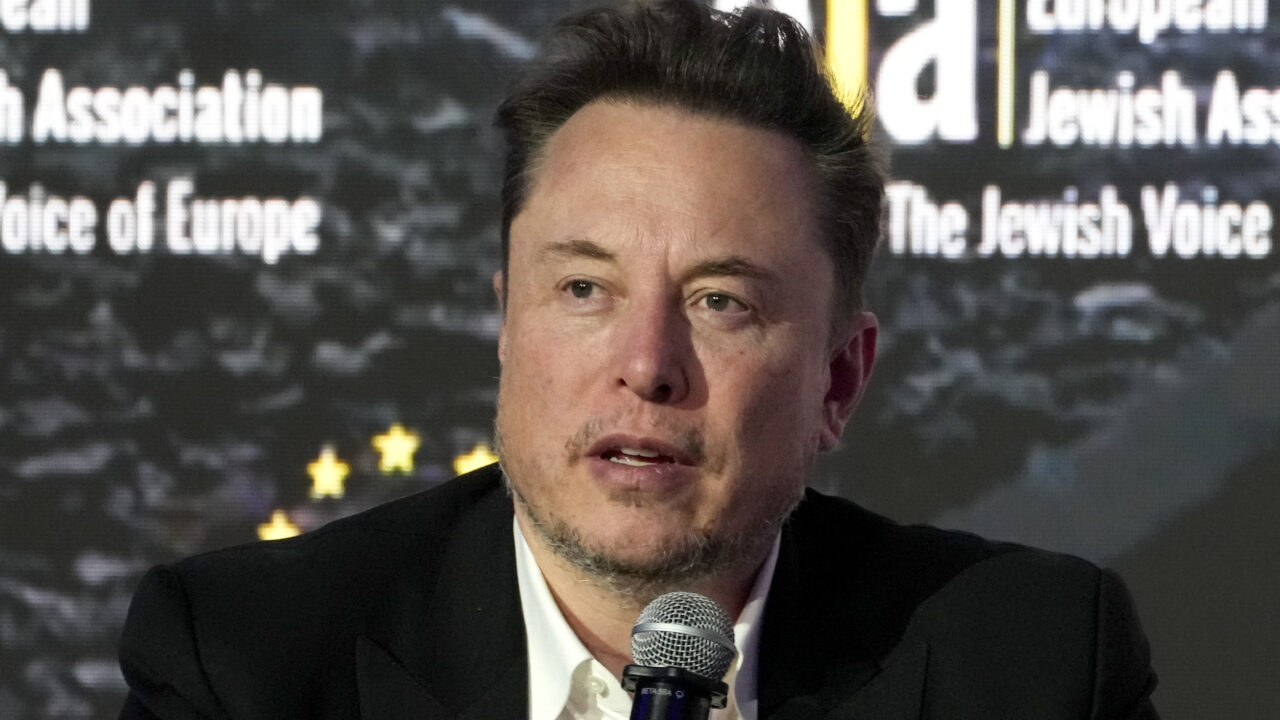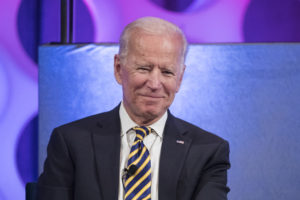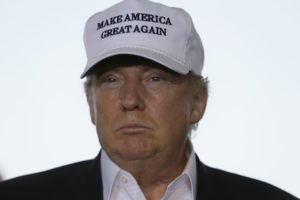Elon Musk’s ‘Unfathomable’ Pay Package Is Null and Void
The Musk ruling sets a huge precedent and could lead to similar suits against other outrageous CEO pay packages. Tesla and SpaceX's CEO Elon Musk addresses the European Jewish Association's conference, in Krakow, Poland, Monday, Jan. 22, 2024. (AP Photo/Czarek Sokolowski, File)
Tesla and SpaceX's CEO Elon Musk addresses the European Jewish Association's conference, in Krakow, Poland, Monday, Jan. 22, 2024. (AP Photo/Czarek Sokolowski, File)
A Delaware state court judge has thrown out the 2018 pay package that helped make Tesla CEO Elon Musk one of the richest people in the world.
A Tesla shareholder brought the suit, claiming the company’s directors breached their fiduciary duties when they awarded Musk stock grants worth up to $55.8 billion.
Delaware Chancery Court Chancellor Kathaleen McCormick begins the post-trial opinion she released yesterday by posing the question, “Was the richest person in the world overpaid?” Her 200-page ruling concludes with a resounding “yes.”
My main takeaways:
1. For a judge to rule on the question of whether a CEO’s pay is “fair” is a huge deal
CEO pay apologists have long argued that the sky should be the limit on executive pay. In fact to claim otherwise, in their view, is downright un-American. In her decision, McCormick systematically strikes down every attempt by Tesla leaders to justify what she refers to as the “unfathomable” size of the pay package.
Was it necessary to keep the CEO from leaving? No. Was it an effective plan to keep Musk properly focused and incentivized? No. Was it the result of negotiation or did Musk dictate the terms? The latter. Were the board members responsible for the pay package independent? Hah! (more on that later)
McCormick systematically strikes down every attempt by Tesla leaders to justify what she refers to as the “unfathomable” size of the pay package.
On the fairness of Musk’s compensation, plaintiffs also could’ve raised the extreme chasm between his paycheck and the firm’s median worker pay (which stood at just $34,084 last year). Extensive research indicates that such gaps are bad for business because they undermine employee morale and productivity.
The bottom line: This case sets a historic precedent by ruling that there is such a thing as unfair, excessive executive compensation.
2. The Musk ruling could lead to similar suits against other outrageous CEO pay packages
The size of Musk’s 2018 pay package was off the charts. With a maximum value of $55.8 billion, the plan is 250 times larger than the median for his peers and over 33 times larger than the plan’s closest comparison (which happens to be Musk’s prior compensation plan).
But while no other CEO pay package has come close to Musk’s, his 2018 deal launched a mega-grant trend at many other major firms. By 2021, the 10 highest-paid CEOs’ average compensation hit $330 million, the highest ever.
With this landmark Delaware ruling, CEOs who’ve been riding that mega-grant wave have to be wondering if they’ll become the target of the next lawsuit over excessive compensation. It’s not hard to imagine that other mega-deals of the past several years were also cooked up by CEOs and toadies on their boards.
3. The suit provides disturbing insight into the mindset of corporate executive compensation committees
The court’s opinion is rich with detail on the coziness between Musk and the three board and management members who handled his compensation plan. One vacationed regularly with Musk’s family and another has enjoyed a 15-year relationship with the entrepreneur. Then there’s the third, a Tesla general counsel and Musk personal divorce attorney “whose admiration for Musk moved him to tears during his deposition,” according to the court document.
Board members admitted they didn’t really do any negotiating with Musk. Instead, they were focused on giving him whatever “dopamine hits” he needed to stay engaged with his car business rather than becoming “distracted by his other ventures.” This, mind you, was before Musk bought Twitter.
The court’s opinion is rich with detail on the coziness between Musk and the three board and management members who handled his compensation plan.
This mentality of bowing down to celebrity CEOs is hardly unique to Tesla. Corporate boards routinely dole out massive “retention” bonuses to their chief executives, citing fears that the whole enterprise would turn to dust if they lose the “genius” in the corner office.
We saw this in the aftermath of the 2008 financial crisis, when Wall Street banks rushed to dole out bonuses to the same men who’d run our economy off a cliff. We saw this during the height of the pandemic, when corporate boards fixated on moving bonus goalposts to keep CEOs happy at the helm while their workers were suffering.
In Musk’s testimony at the trial, he tried to justify his pay by pointing to Tesla’s impact on the car industry. But about 100,000 other Tesla employees also contributed to that impact. Companies overvalue their CEO while undervaluing workers below the C-suite at their peril.
4. The case adds a powerful tool to shareholders’ toolbox
For decades now, shareholder activists have been filing resolutions critical of excessive CEO pay and expressing their disapproval of executive pay packages through nonbinding annual “say on pay” votes. While in some instances these actions have helped moderate pay at particular firms, the hurdles are extremely high.
The shareholder suit that led to the Musk ruling will open many eyes to the possible uses of this alternative tool.
5. What happens next?
The court ordered the “rescission” of Musk’s 2018 stock grants, meaning that they would be null and void. The board would need to negotiate a new, more reasonable compensation package for their CEO. Beyond that, Tesla has to pay the fees of the plaintiffs’ lawyers but is not on the line for a penalty fine.
Musk and his board could appeal the ruling. So far, Musk’s only response has been this post on X: “Never incorporate your company in the state of Delaware.”
6. That Delaware judge is one heckuva writer!
Chancellor McCormick’s post-trial opinion is a hoot if you enjoy droll wit. Gotta love the jab at Musk’s space fantasies here:
“Some might question whether colonizing Mars is the logical next step. But, in all events, that ‘get’ had no relation to Tesla’s goals with the compensation plan.”
“The incredible size of the biggest compensation plan ever — an unfathomable sum — seems to have been calibrated to help Musk achieve what he believed would make ‘a good future for humanity.’ A good future for humanity is a really good thing. Some might question whether colonizing Mars is the logical next step. But, in all events, that ‘get’ had no relation to Tesla’s goals with the compensation plan.”
Note the sly Tesla metaphors here:
“In the final analysis, Musk launched a self-driving process, recalibrating the speed and direction along the way as he saw fit. The process arrived at an unfair price. And through this litigation, the plaintiff requests a recall.”
If she gets tired of taking on billionaires, McCormick could easily have a second career as a humor writer.
Your support matters…Independent journalism is under threat and overshadowed by heavily funded mainstream media.
You can help level the playing field. Become a member.
Your tax-deductible contribution keeps us digging beneath the headlines to give you thought-provoking, investigative reporting and analysis that unearths what's really happening- without compromise.
Give today to support our courageous, independent journalists.





You need to be a supporter to comment.
There are currently no responses to this article.
Be the first to respond.